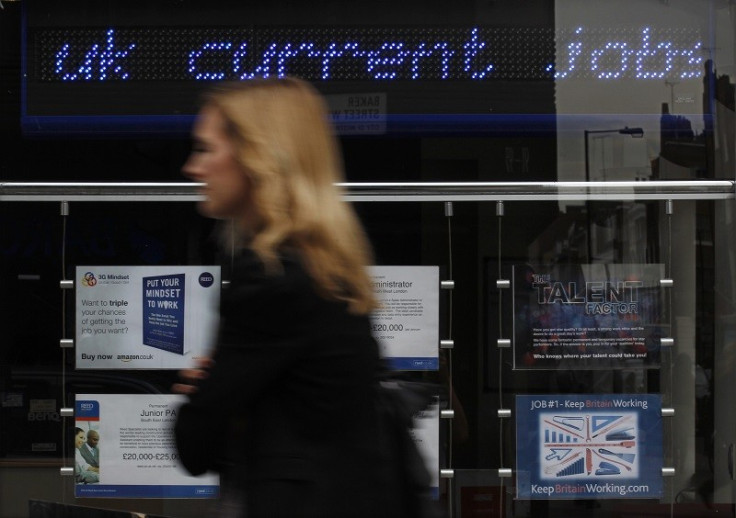UK Companies Report Strongest Job Optimism Since Recession

More British companies expect to create jobs than not over the next 12 months for the first time since the onset of the recession in 2008.
The On The Up report from the Confederation of British Industry, which received 325 responses from firms employing a total of more than one million workers in September, found private sector workforces were expected to grow across all regions. Yorkshire and Humberside and the East Midlands were the most buoyant.
The survey, which was also commissioned by Accenture, also revealed an increasing number of job opportunities for young people.
The CBI said that graduate job prospects were picking up with +20% of organisations planning to increase graduate intake in the next year - 33% as opposed to 13% of firms cutting their intake.
Firms were rapidly growing apprentice numbers (+34%) and four in five firms (81%) expected new job opportunities to open up for young people.
"We're starting to see the recovery have an impact on business plans to hire, with more than half of firms boosting staff numbers next year and more opportunities for young people," said Katja Hall, CBI chief policy director.
The business organisation said its research also revealed a continued cautious approach to pay, and underlined the vital role played by flexible contracts in underpinning growth and job creation.
Jobs for permanent staff, for example, increased more rapidly than temporary posts, with a balance of +18% (35% plan higher recruitment and 17% lower) of firms planning to raise permanent hires and +14% their temporary workforce (29% higher, 15% lower).
"The news that firms are expecting to grow their workforces is another welcome sign of the UK's economic recovery," said Olly Benzecry, managing director for Accenture in the UK and Ireland.
"The skills agenda is critical to not only sustain this growth but to make it inclusive, increasing employability and opportunities for young people who are not in a job, training or education."
The study also found that businesses continued to take a cautious approach to pay rises with more than a third (39%) planning a rise below Retail Price Index (RPI) inflation or targeting an increase on certain staff only, while only 7% intend to raise pay by more than RPI.
More than four in 10 (42%) companies expected pay to increase in line with RPI inflation, which suggests pay growth will start to rise again over the next year, but not to high levels.
The CBI said as the recovery becomes more secure, the proportion of firms planning to freeze pay at the next review has dropped to a new low (8%).
Firms have rejected the idea of a mandatory wage higher than the National Minimum Wage - 42% said wages can only rise in line with productivity gains, according to the report.
On the living wage, 43% of businesses said it was useful as a voluntary reference point, but only 12% of firms said there should be any legal obligation to pay the living wage.
Almost all firms (97%) regarded flexible employment patterns, such as use of agency workers and zero-hour contracts, as either vital or important to the UK economy.
Companies said that they enabled companies to cope with fluctuating demand (87%), respond rapidly to growth opportunities (81%) and provide a stepping stone into work for those vulnerable to long-term unemployment (58%), as well as offering choice to those who don't want full-time work (65%).
The CBI said businesses viewed the biggest threats to flexibility and UK labour market competitiveness coming from employment regulation (68%).
© Copyright IBTimes 2025. All rights reserved.




















